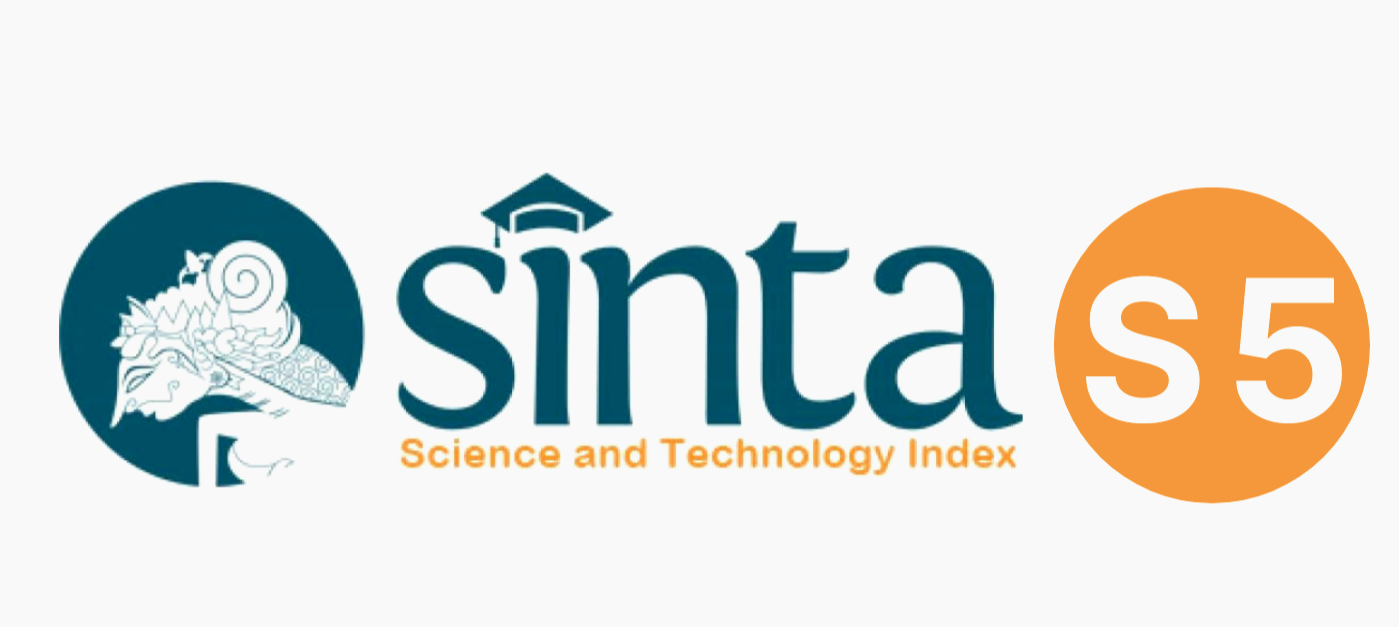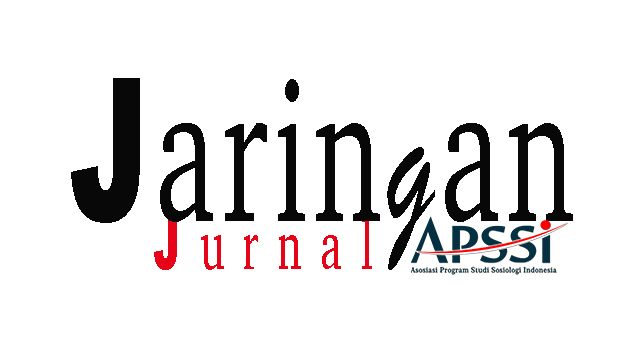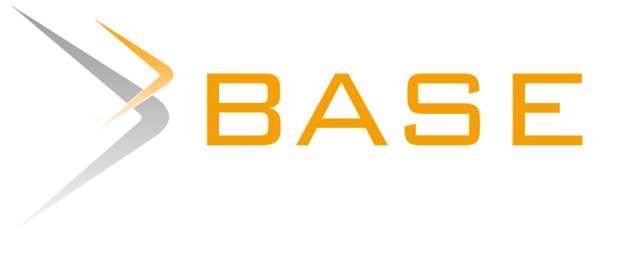Rasionalitas Ekonomi Petani Kopi di Desa Padang Bindu Kecamatan Pasemah Air Keruh Kabupaten Empat Lawang
 Abstract: 268
/
Abstract: 268
/  Abstract: 8
Abstract: 8
DOI:
https://doi.org/10.47753/je.v4i2.80Keywords:
rasionalitas petani, keadaan ekonomi, tindakan ekonomi, usaha di luar sektor pertanian, petani kopiAbstract
Sektor pertanian merupakan mata pencahrian mayoritas penduduk Indonesia dan yang berkembang salah satunya komoditas kopi, dikelola oleh petani kopi. Penelitian ini mengkaji permasalahan bagaimana keadaan ekonomi petani, tindakan ekonomi petani yang menggambarkan tindakan yang rasionalitas pada petani. Penelitian ini adalah bersifat deskriptif analisis yaitu penelitian yang mengambarkan keadaan suatu fenomena yang digambarkan dengan kata-kata atau kalimat yang dipisah-pisahkan menurut katagorinya untuk memperoleh kesimpulan, dengan tujuan untuk membuat deskripsi, gambaran secara sistematis, faktual dan akurat mengenai fakta-fakta setiap hubungan mengenai keadaan ekonomi, tindakan ekonomi, serta usaha di luar sektor pertanian yang dilakukan oleh petani kopi di Desa Padang Bindu Kecamatan Pasemah Air Keruh Kabupaten Empat Lawang. Pengumpulan data dilakukan dengan observasi, wawancara mendalam kepada informan dan peneliti menggunakan pedoman wawancara. Hasil Penelitian menunjukan bahwa petani kopi di Desa Padang Bindu Kecamatan Pasemah Air Keruh Kabupaten Empat Lawang telahmelakukan tindakan dan keputusan berdasarkan rasionalitas. Petani saling tolong menolong pada kondisi subsisten dan petani telah berpikir rasional. Setiap tindakan dilakukan atas dasar rasionalitas, petani sudah memikirkan untung rugi dari setiap keputusan yang dibuat. Meskipun tingkat Pendidikan petani rendah, tetapi petani menyadari bahwa pendidikan penting dan berusaha untuk memberikan Pendidikan yang baik bagi anak-anak mereka. Anak-anak merupakan investasi dimasa depan, selain itu petani juga melakukan investasi tanah, hewan ternak dan barang milik pribadi lainnyaReferences
Alberto, A. (2009). Living in times of solidarity: Fair trade and the fractured life worlds of guatemalan coffee farmers. Journal of International Development, 21(7), 1031–1041. http://doi.org/10.1002/jid.1634
Arango-Aramburo, S., Acevedo, Y., & Sonnemans, J. (2019). The Influence of the Strength of Financial Institutions and the Investment-Production Delay on Commodity Price Cycles: A Framed Field Experiment with Coffee Farmers in Colombia. Economist (Netherlands), 167(4), 347–358. http://doi.org/10.1007/s10645-019-09343-z
Bizimana, C., Nieuwoudt, W. L., & Ferrer, S. R. D. (2002). Factors influencing adoption of recommended farm practices by coffee farmers in Butare, southern Rwanda. Agrekon, 41(3), 237–248. http://doi.org/10.1080/03031853.2002.9523597
Bosselmann, A. S. (2012). Mediating factors of land use change among coffee farmers in a biological corridor. Ecological Economics, 80, 79–88. http://doi.org/10.1016/j.ecolecon.2012.05.007
Creswell, J. W. (2014). Research Design: Qualitative, Quantitative, and Mixed Methods Approaches. Thousand Oaks: SAGE Publications. http://doi.org/10.1007/s13398-014-0173-7.2
Do Hai Dang, & Dreyfus, F. (1997). Collective action and farmer’s rationality in Red River Delta (Vietnam) | Action collective et rationalite paysanne dans le delta du fleuve Rouge (Vietnam). Agriculture et Developpement, 15, 75–80.
Dries, I. (1991). Development of wetlands in Sierra Leone: farmers’ rationality opposed to government policy. Landscape and Urban Planning, 20(1–3), 223–229. http://doi.org/10.1016/0169-2046(91)90115-3
Francis, C. A. (1985). Rationality of new technology for small farmers in the tropics. Agriculture and Human Values, 2(2), 54–59. http://doi.org/10.1007/BF01530551
Garcia, C. A., Vendé, J., Konerira, N., Kalla, J., Nay, M., Dray, A., … Vaast, P. (2020). Coffee, farmers, and trees-shifting rights accelerates changing landscapes. Forests, 11(4). http://doi.org/10.3390/F11040480
Hotmarida, S., Ayu, S. F., & Rahmanta. (2020). Factors that influence the decision of coffee farmers to take credit in North Sumatra. In IOP Conference Series: Earth and Environmental Science (Vol. 454). http://doi.org/10.1088/1755-1315/454/1/012017
Hu, M., Liu, Y., & Wang, W. (2019). Socially beneficial rationality: The value of strategic farmers, social entrepreneurs, and for-profit firms in crop planting decisions. Management Science, 65(8), 3654–3672. http://doi.org/10.1287/mnsc.2018.3133
Méndez, V. E., Bacon, C. M., Olson, M., Petchers, S., Herrador, D., Carranza, C., … Mendoza, A. (2010). Effects of fair trade and organic certifications on small-scale coffee farmer households in Central America and Mexico. Renewable Agriculture and Food Systems, 25(3), 236–251. http://doi.org/10.1017/S1742170510000268
Miller, D. (1997). Critical Rationalism: A Restatement and Defence. Chicago: Open Court Publishing Company.
Naranjo, M. A., Pieters, J., & AlpÃzar, F. (2019). Credit, insurance and farmers’ liability: Evidence from a lab in the field experiment with coffee farmers in Costa Rica. Journal of Economic Behavior and Organization, 166, 12–27. http://doi.org/10.1016/j.jebo.2019.09.004
Narayana, M. R. (2014). Size distribution of estates, inequality and poverty: evidence for India’s household coffee farmers. Journal of Asian Public Policy, 7(1), 18–40. http://doi.org/10.1080/17516234.2013.873339
Nordholt, H. S. (2012). Decentralization and democracy in Indonesia: Strengthening citizenship or regional elites? In Routledge Handbook of Southeast Asian Politics (pp. 229–241). Taylor and Francis. http://doi.org/10.4324/9780203155011-26
Ntaliani, M., Costopoulou, C., Karetsos, S., Tambouris, E., & Tarabanis, K. (2010). Agricultural e-government services: An implementation framework and case study. Computers and Electronics in Agriculture, 70(2), 337–347. http://doi.org/10.1016/j.compag.2009.09.008
Nyemeck, B. J., Sylla, K., Diarra, I., & Nyambi, G. (2003). Factors affecting technical efficiency among coffee farmers in Côte d’Ivoire: Evidence from the centre West region. African Development Review, 15(1), 66–76. http://doi.org/10.1111/1467-8268.00063
Panganiban, G. G. F. (2019). E-governance in agriculture: digital tools enabling Filipino farmers. Journal of Asian Public Policy, 12(1), 51–70. http://doi.org/10.1080/17516234.2018.1499479
Popkin, S. (1980). The rational peasant - The political economy of peasant society. Theory and Society, 9(3), 411–471. http://doi.org/10.1007/BF00158397
Prihandono, I., & Relig, F. H. (2019). International Certification as a Mechanism for Protecting the Human Rights of Indonesian Coffee Farmers. Environmental Policy and Law, 49(1), 49–54. http://doi.org/10.3233/EPL-190125
Ruf, F., & Yoddang. (2013). From migration to motorisation: How market liberalisation has benefitted coffee farmers. Agriculture in Crisis: People, Commodities and Natural Resources in Indonesia 1996-2001.
Sumarjono, Prasetyo, B. A., Surya, R. A., Soepeno, B., & Swastika, K. (2019). The dynamics of social culture of the smallholder coffee farmers in Mulyorejo village, Silo district, Jember Regency, 2000-2017. In IOP Conference Series: Earth and Environmental Science (Vol. 243). http://doi.org/10.1088/1755-1315/243/1/012166
Świtek, S., & Sawinska, Z. (2017). Farmer rationality and the adoption of greening practices in Poland. Scientia Agricola, 74(4), 275–284. http://doi.org/10.1590/1678-992X-2016-0167
van Asseldonk, M. A. P. M., van der Veen, H. B., & van der Meulen, H. A. B. (2010). Retirement planning by Dutch farmers: Rationality or randomness? Agricultural Finance Review, 70(3), 365–376. http://doi.org/10.1108/00021461011088495
Downloads
Published
Issue
Section
License
Articles published in Jurnal Empirika are licensed under the International License of Creative Commons Allowance-ShareAlike 4.0. The author is free to use any media to copy, change, or redistribute the paper, provided the author gives credit to the original author and this journal, links to the license, shows if modifications have been made, and redistributes it in the same permission. The author grants the right to any third party to use their posts following the Creative Commons Attribution-Share Alike International 4.0.











